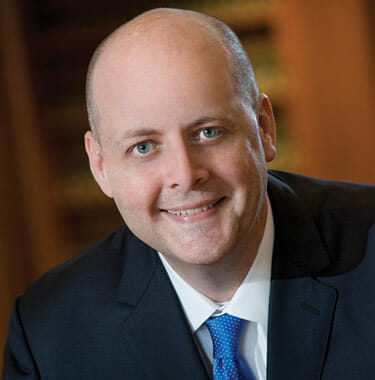May 16, 2022

Knowing how to appeal a health insurance claim denial is essential when your health and finances are at stake. Oklahoma’s system includes an internal appeal by the insurance company plus an external review if the insurer’s review doesn’t go your way. This system is less than perfect, and the results aren’t always what they should be. But Doug Terry Law can help you find the best way to appeal a health insurance claim denial.
The U.S. has the world’s most expensive health care, so you should have the best medical coverage you can afford. Not getting preventative care or avoiding medical treatment because you can’t afford it is a medical disaster waiting to happen. Most insurance companies treat their customers fairly, but health insurers sometimes make the wrong decisions. At Doug Terry Law, we do our part to turn these situations around.
How to Fight a Health Insurance Claim Denial
Wondering what to do if your health insurance claim is denied? Your first step can be to contact an Oklahoma insurance claim lawyer with experience in fighting insurers that unjustly refuse to pay claims or use tactics to delay or reduce payment. Our skilled representation may be the difference between success and failure when you make an appeal. We can help you fight a health insurance claim denial by working with the insurer on your behalf, or we may find that litigation in court is the right choice for you.
Want to Know How to Appeal a Health Insurance Claim Denial?
First, you must file an appeal with your insurance company. This initial step is called an “internal appeal,” and it must happen before the appeal process can move on to another step. This process forces the company to look at your claim again to see if they missed anything the first time when they denied it.
The internal appeal is also required to later make an appeal to the Oklahoma Insurance Department (OID), with some exceptions. You don’t need an internal appeal with your insurer if you’re going to an outside review because either 1) you and the company waive the internal process or 2) you need immediate medical care.
Deadlines to Appeal a Health Insurance Claim Denial
There are deadlines that apply when you request an internal appeal. For most insurance companies, you must appeal their denial within 180 days of receiving their written notice. For your insurer, this timeline may be different, so find out what time limit you face. An internal appeal typically takes 30 to 60 days to complete.
How to Appeal a Denied Medical Insurance Claim
Your health insurance company should provide you with instructions and contact information for an appeal. You may have different options that can include:
- Send a letter by certified mail. A certified letter will give you proof that your insurance company received it.
- You might call the insurer and ask. This isn’t the best approach, because there are no written records of the call (though you could write your own notes).
- If an expedited appeal is requested because your condition needs treatment quickly, there could be a “peer-to-peer” call from your physician to the insurance company. Ask your physician to keep documentation of the call for later reference.
A letter asking for your appeal is a very important document. If it’s done right, it can improve the chances of a reversal. It could get you needed treatment more quickly and save you thousands of dollars. It will also be part of the documents used in an external review if the internal appeal isn’t successful. The letter needs to be accurate, discuss the reason for the denial, and state your case regarding why the decision was wrong.
This letter is an important part of how to fight health insurance claim denial. It should include:
- A summary of your medical history, diagnosis, and treatment
- Why your claim was denied
- What you want from the appeal
- Why your request is justified. Cite the facts, statements from your doctor, and parts of your policy that support your request.
- Attach documents and specific medical records that support your claim. Don’t bury the reviewer in paper; focus on what’s most important.
If there’s no change in the company’s position, there is another step in how to appeal a denied medical insurance claim. It is to ask the OID for an outside review. However, some denials aren’t eligible for review through the OID:
- You can’t have an external review over a treatment that’s not a covered benefit, even if you think it’s medically necessary.
- Denials based on administrative issues, like not paying a premium on time, also can’t go through this process.
- If your coverage is through Medicare, Medicaid, another federal plan, or your employer’s self-funded plan, they have a different appeal system.
How to Fight a Denied Health Insurance Claim: The External Review Process
The outside appeal would be done by an Independent Review Organization (IRO). It isn’t affiliated with your health insurer and has no financial interest in your case. IROs are usually consulting, accounting, or law firms with expertise in this area.
IROs are certified by the OID and have a national certification. They must show they’re unbiased and use qualified and independent reviewers. If OID decides you’re eligible for an external review, it will randomly assign your appeal to an IRO.
You have four months from the insurer’s decision in which to ask for an external review. The IRO has up to 45 days after OID accepts your request to issue a decision. It may come much faster if you ask for an expedited review because you urgently need medical treatment. An IRO review won’t cost you anything. Your insurance company pays for it.
An external review can look at a denial based on coverage requirements for:
- Medical necessity
- Appropriate treatment
- Where the treatment will be given
- A certain level of care or effectiveness (including whether the proposed treatment is experimental or investigational).
The IRO must consider all of the documents, records, and information you and the insurer provide. This includes medical or scientific evidence, the insurance contract, and any legal bases given for your denial. If you want to add to your internal appeal request, this is the time.
The IRO decision is binding on the parties. If you’re not successful, your next option in how to fight a denied health insurance claim may include a legal claim for bad faith against your insurer. Insurers should act in good faith when handling legitimate claims by policyholders. If you believe your insurer is not doing this, consulting an Oklahoma City bad faith insurance lawyer can be a crucial step. Insurers must treat customers fairly, including paying claims that legitimately should be covered. Unfairly denying or delaying paying valid claims could be the basis of a bad faith claim. This law area protects policyholders against companies too interested in collecting premiums while avoiding paying covered claims.
The Best Way to Appeal a Health Insurance Claim Denial Starts with Talking to Doug Terry Law
If your health insurance claim is denied, contact Doug Terry for a consultation. As experienced Oklahoma health insurance claim denial lawyers, most of our practice is devoted to helping people like you who have been wronged by their insurance companies. Our firm has a reputation for working tirelessly for those treated unfairly and illegally by their insurance companies.
We can talk about your situation, your claim, and its denial. We can also give you essential guidance and discuss the next steps you should consider. If you retain our firm, we will start investigating and building your case. We can put our years of experience in handling bad faith insurance claims to work for you.
If your health insurance claim has been illegally denied or delayed, the team at Doug Terry Law is here for you. Contact our office today by calling (405) 463-6362 to schedule your case evaluation.



 After 25 years practicing in a larger firm, Doug chose to open his own practice in Oklahoma City. He brings his wealth of knowledge and his skills as a litigator to bear for his clients in matters of insurance bad faith, personal injury cases and class actions. He won $200 million and $25 million verdicts for clients in cases in which an insurer denied a health insurance claim. Doug has the distinction of being awarded a Martindale-Hubbell “AV Preeminent” rating from his peers in the legal community. He has also been selected as an Oklahoma Super Lawyer. [
After 25 years practicing in a larger firm, Doug chose to open his own practice in Oklahoma City. He brings his wealth of knowledge and his skills as a litigator to bear for his clients in matters of insurance bad faith, personal injury cases and class actions. He won $200 million and $25 million verdicts for clients in cases in which an insurer denied a health insurance claim. Doug has the distinction of being awarded a Martindale-Hubbell “AV Preeminent” rating from his peers in the legal community. He has also been selected as an Oklahoma Super Lawyer. [



